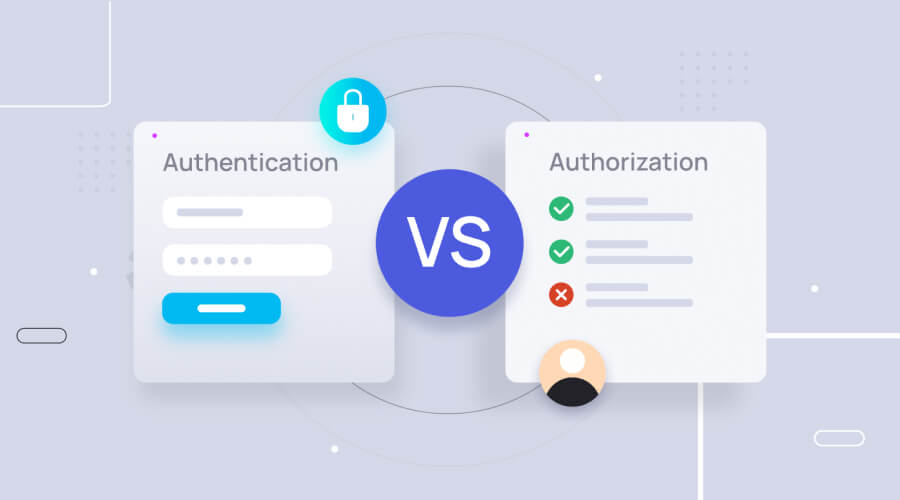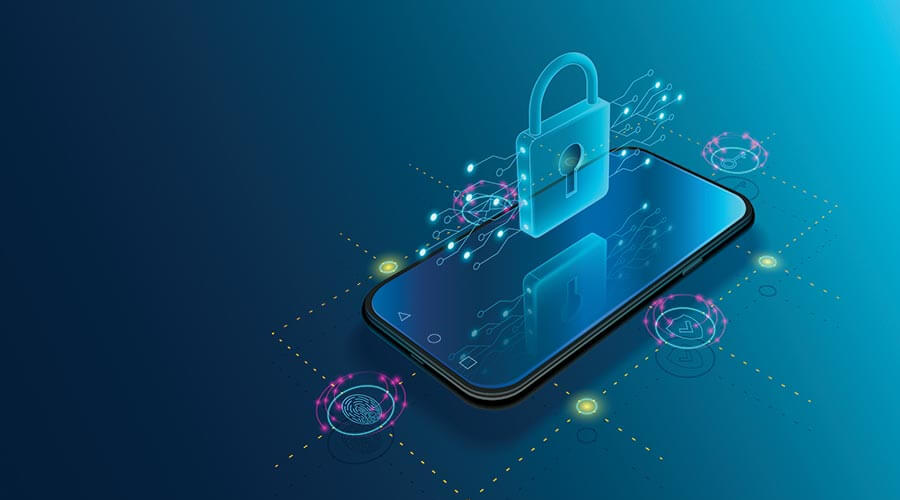
The increased use of smartphones has given birth to mobile application development or M-commerce. Mobile applications have gained immense traction in the past few decades. Almost every company now has its own mobile application to help its customers have a great shopping experience.
Mobile application development has altered every facet of our day-to-day lives, including how we shop, how we learn, and how we go about our jobs, especially after the COVID-19 outbreak. Mobile technology has made everything simpler, more expedient, and more effective.
Numerous companies and customers were drawn to its utilization as a result of its abundant benefits to their respective fields. Undoubtedly, mobile apps are convenient, fast, and efficient. However, the issue that concerns mobile consumers the most is the safety of their mobile applications. Businesses must develop their mobile apps with great care.
Research indicates that 60% of all digital fraud, including phishing and stolen passwords, is committed on mobile devices.
Today people use mobile apps for almost every activity, including online shopping, banking, paying bills, interacting on social media, and so on. In addition, apps enable businesses to collect useful information such as usage statistics, the locations of users, the preferences of users, and many more. Therefore, it is crucial for businesses to develop an application that is safe and secure.
In this article, we will discuss the importance of mobile app security for every business.
So, let’s get started…
What exactly is “Mobile App Security?”
Mobile app security, as the name says, is the process of protecting mobile applications from external dangers such as cybercriminals, computer viruses, and other forms of online danger. These infections and other cyber dangers might put sensitive data, such as financial information, at risk from hackers.
In today’s scenario, where an unlimited number of online hackers or criminals are trying to steal your data, the security of mobile applications has emerged as an unavoidable necessity. Hackers may gain access to users’ personal information if there is a breach in the mobile platform’s security. Also, they can even have access to other essential details, such as your banking information, your current location, and a great deal more.
Threats to the Security of Mobile Applications
Let me walk you through a few of the potential dangers associated with mobile applications and how they could affect the safety of your company.
1. Lack of Binary Protection
Suppose your mobile application does not have binary protection. In that case, it will be simple for a hacker to examine, reverse-engineer, or modify the code in order to introduce malware and carry out some strange features. Theft of confidential data and intellectual property, loss of revenue and privacy, illegal access, fraud, and damage to the reputation of a brand can all result from a lack of binary protection.

2. Theft of Financial Records
Hackers have the ability to make transactions after stealing the user’s financial data, such as credit card or debit card information. Hackers employ numerous viruses, such as trojans, to trick Android users into getting their financial details, such as credit card information.
Cybercriminals usually infect your mobile devices with malware and collect vital financial information from their devices. Hackers are able to obtain the user’s financial information and conduct fraudulent transactions using the user’s card using these methods.
3. Theft of Vital Information
Hackers can compromise a wide variety of other crucial data in addition to financial information, such as the account credentials of any user or any website. Downloaded applications are a common vector for the spread of malware of a similar variety.
Malware has the ability to infect the device, coerce it into sending or receiving messages, and request authorization to access the location of the device. Additionally, it has the capability to read the contact list and support push alerts and engage in any activity that could be hazardous without your authorization.
4. Unintentional Data Leakage
Bugs in the operating system, carelessness on the part of the user, or an accidental mistake on the part of the developer might all lead to the sensitive information of your app being kept in insecure locations on the user’s smartphone. Upon having access to this data, hackers can easily steal your personal information.
5. Insufficiently Secure Authorization and Authentication
More often than not, poor authentication or authorization inputs lead to online crimes. In most cases, this issue arises because the mobile application in question has a weak password policy, which ultimately results in insecure authentication.

6. The Incorrect Storage of Data
This is another one of the most significant dangers to mobile app users. This vulnerability can be easily exploited if the mobile app saves sensitive data such as passwords, PINs, or any other personal or financial information without using encryption. If the hackers manage to get their hands on this information.
7. Weak Server-Side Controls
The mobile developers don’t pay nearly enough attention to the safety of the mobile app servers. Therefore, when communication takes place between users and mobile apps, the system is put in a vulnerable state and is subject to potential security threats.
More often than not, it happens when you hire a random or less skilled app development company to do the job. A professional mobile app development company, such as WeeTech that has a team of expert and skilled developers who use their experience and expertise to create safe and secure mobile apps.
8. Revenue loss
Hackers have the ability to gain unauthorized access to the premium edition of the software or its additional features. This could result in a drop in total revenue. This kind of hacking is most commonly carried out in gaming and utility applications.
How To Develop Secure Apps?
Here are the steps you may take to protect the privacy and data of your mobile applications.
1. Exercise Caution
Developers should exercise caution while making an app and incorporate features to help them find and fix security flaws. Developers should check that their programs can’t be modified or reverse-engineered in any way.

To protect your application from these kinds of attacks, encrypting the source code is a good idea.
2. Conduct a Complete Quality Assurance and Security Audit
Before releasing an application, the developer must conduct a complete quality assurance and security audit. In particular, penetration testing can help you protect your mobile apps from potential security flaws. Identifying security flaws is crucial as these openings can potentially develop into dangers that grant access to mobile data and functionalities.
3. Protect Information While in Transit
When it comes to preventing unauthorized parties from accessing or stealing sensitive data as it travels from client to server, Secure Sockets Layer (SSL) or Virtual Private Network (VPN) comes in handy. SSL and VPNs are great tunnels to encrypt and secure user data.
4. Implement Cutting-edge Cryptographic Methods
Implementing up-to-date encryption techniques, such as AES with 512-bit encryption, 256-bit encryption, and SHA-256, is crucial. Also, you should conduct manual penetration testing along with threat modeling on your applications before releasing them to the public.
5. Robust Authentication
Security flaws occur due to a lack of strong authentication. The apps should be built so that only complex alphanumeric passwords are accepted.

Biometric authentication, such as a fingerprint or retina scan, can be used to fortify the safety of particularly sensitive apps.
Also Read: Biometric Consent Verification
6. Safeguarding the Server Infrastructure
The vast majority of mobile apps use client-server architecture. It’s crucial to install safety features to protect backend servers against intrusion by malicious users.
Most programmers believe that APIs are restricted to only the apps that have been specifically designed to use them. API authentication and transport protocols can vary from one mobile platform to the next, so it’s important to make sure your APIs work with the one you’re targeting.
Why Is Mobile Application Security Important For A Business?
Although businesses are aware of the significance of data center security in general, relatively few have well-defined application security policies in place. This makes it difficult for businesses to keep up with, let alone get ahead of, cybercriminals.
Identifying and closing security holes is, in fact, the most important part of the application security process. However, as cybercriminals create increasingly complex methods, businesses need to keep one step ahead of them, and ideally several steps ahead, using contemporary security technologies.
There is simply no space for ineffective security strategies in this day and age due to the fact that threats are becoming harder to detect and even more damaging to a company.
Not having the right means in place to prevent security breaches from occurring can soil your business’ name. A secure app can help you have increased revenues and better clientele.
Due to the ever-increasing danger of harmful actions, developers must give top emphasis to mobile app security issues. As a result, people are more hesitant to download programs they don’t know are safe.
The majority of people employed in the world do their jobs from home these days, and some businesses hire independent contractors who use their own personal laptops or desktop computers to complete their assignments for those businesses. This method exposes businesses to the possibility of cyberattacks. A single vulnerability is all that is needed to compromise the customers’ and company’s systems’ respective levels of privacy. As a result, it is vital for developers to inspect the app’s security; developers are required to provide the most up-to-date security features to protect user privacy and data.
If mobile app security is implemented correctly, it gives users the ability to safeguard sensitive and private data, protect themselves against data loss, malware, and virus assaults, and defend themselves against legal action brought on by unprotected systems.
Wrapping it up…
We hope the aforementioned tips and advices help put your mind at ease as you work to build a trustworthy mobile app for your clientele.
WeeTech employs a rigorous security testing strategy and implements best practices for mobile app security to guarantee the safety and security of your apps. We put a lot of time and effort into testing and have mobile development experts to ensure you get the best software possible.
Contact us for more details!






